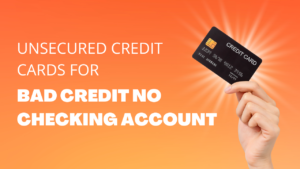Social Security scams are becoming a big problem in the United States, especially when millions of retirees receive their checks. To help protect beneficiaries from fraud, the Social Security Administration (SSA) has announced several recommendations.
These scams often involve criminals pretending to be from the SSA or other government agencies to steal personal information or money. This article will help you understand how to recognize these scams and protect yourself and your loved ones.
How Scammers Contact You
Scammers may contact you through phone calls, emails, text messages, or social media, claiming to be from the Social Security Administration or the Office of the Inspector General. It’s important to know that SSA employees do make phone calls for business purposes.
These calls are usually made to people who have requested a call, are receiving payments and need to update their records, or have recently applied for monthly benefits. If there is an issue with your Social Security Number (SSN) or record, the SSA will typically send a letter.
Common Scamming Tactics
Scammers are always coming up with new tricks to deceive people. Here are some warning signs that the contact you are dealing with is a scam:
- Threats and Pressure: Scammers may threaten to have you arrested or take legal action if you don’t pay immediately. They might claim your SSN is suspended or say you must provide personal information to receive a benefit increase.
- Unusual Payment Requests: They might ask you to pay using gift cards, wire transfers, prepaid debit cards, cryptocurrency, or even mailed cash.
- False Offers of Protection: Scammers may offer to transfer your funds to a “protected” bank account.
- Confidentiality Requests: They might request that you keep the conversation a secret.
- Direct Social Media Messages: The SSA will never contact you through direct messages on social media.
Spotting Fake Social Media Accounts
Scammers often create fake social media pages that look official. Here’s how you can spot them:
- Number of Followers: Official SSA pages will have a large number of followers.
- Spelling and Grammar: Look out for incorrect punctuation and spelling errors.
- Links: Ensure links go to pages on the official SSA website, ssa.gov.
- Advertisements: Official SSA pages will not advertise forms or documents.
- Social Media Handles: Check for the correct social media handle. Visit www.ssa.gov/socialmedia for a list of official SSA channels.
Protect Yourself from Scams
Here are some tips from the SSA to help you avoid scams:
- Stay Calm: If you get a message that makes you upset, take a deep breath and talk to someone you trust.
- Ignore Suspicious Messages: Hang up the phone or delete the message without clicking any links or attachments.
- Protect Your Money: Do not pay scammers with gift cards, prepaid debit cards, cryptocurrency, wire transfers, or cash. These payment methods are hard to trace.
- Guard Your Personal Information: Be cautious if someone claiming to be from a government agency or law enforcement contacts you about an issue you don’t recognize, even if they have some of your personal information.
- Spread Awareness: Share this information with your family, friends, and community to help keep scammers away.
Social Security scams are a growing issue, but by staying informed and vigilant, you can protect yourself and your loved ones. Always verify any communication claiming to be from the SSA, and be aware of the common tactics scammers use.
Remember to share this information with others to help keep your community safe. If you ever feel unsure about a message or call, it’s better to be cautious and check directly with the SSA.
1. How can I verify if a call from the SSA is legitimate?
You can call the SSA directly at their official phone number, 1-800-772-1213, to verify any communication.
2. What should I do if I receive a suspicious email or message?
Do not click on any links or attachments. Report the email or message to the SSA and delete it immediately.
3. How can I protect my SSN and personal information?
Be cautious about sharing your SSN and personal information. Only provide it to trusted and verified sources.
4. What should I do if I think I’ve been scammed?
Report the scam to the SSA’s Office of the Inspector General. You can also contact your bank or credit card company if you’ve shared financial information.
5. Are there any official resources to learn more about SSA scams?
Yes, you can visit the SSA’s official website, www.ssa.gov, and follow them on social media for the latest updates and advisories.
